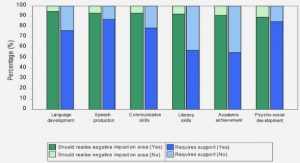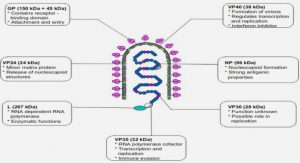Get Complete Project Material File(s) Now! »
Positioning the ARGOS social science approach
In the introductory document to the Social Objective of ARGOS (Rationale document— Campbell, et al. 2004), a broad distinction was made between two styles of research into sustainable agriculture. We summarise these here in order to elaborate the constraints to more comprehensive understandings of agricultural sustainability that are confronted in a largely disciplinary focused literature. We contend that, while these research styles provide substantial insight to the social dimensions of agriculture, they do not offer satisfactory explanations of sustainability more generally. The failure of these approaches to comprehensively inform the analysis of sustainability lies in their reliance on idealised management types: the conventional and the alternative. While this dualism facilitates the critique of generalised failings of either type, it does not account for the social processes through which individuals are embedded within the conventions that justify a particular set of practices. Rather than providing a research framework for the ARGOS project, these approaches establish the evolving context within which social science attempts to explain the social dimensions of sustainable agriculture. In other words, they represent recognised theoretical building blocks that hold some explanatory currency in social analyses of agriculture.
Framing Social Difference in Market-Audit Demarcated Production Systems
Given the absence of any in-depth research into the social differentiation associated with market-audit compliance, the ARGOS programme occupies a unique position from which to provide greater understanding of the social dynamics of sustainable agriculture. The literature reviewed in developing the ARGOS research framework (see Campbell, et al. 2004 for a more detailed examination of the literature associated with each of the approaches listed) gives some indication as to the variety of social dimensions to agriculture that might, or might not, differ across audit-demarcated production systems. Much of this literature is based on the assumption that existing management systems are following unsustainable trajectories of negative social, economic and environmental impacts. Divergence from these trajectories is impeded by the strength of existing justifications and rationalisations thus requiring socially risky contestation of the status quo. The presence or absence of specific differences—or, for that matter, of the relationships of these to sustainable practice or outcomes—should not be interpreted as an absolute statement about a system’s sustainability. Rather, each of these categories is related to an axis of differentiation within a farming population. In the social science literature, these have hypothesised relationships to the practice of sustainable agriculture thereby forming a theoretical basis for explanation.
Preliminary ARGOS results and Ovoid Ideal Types
Having established the need to undertake comparisons between panels as the key guiding question of this report, an important clarification needs to be made. In an earlier report on qualitative interview data (Qual 1 Kiwifruit, Hunt, et al. 2005a), it was suggested that, in order to understand the social characteristics of different panels of orchardists, it was important to recognise that in many cases the similarities between the panels were just as instructive as the differences. In that report, a heuristic device was developed to try and account for how the farms differ. This was termed the ‘ovoid ideal type’, deriving from the Weberian concept of ‘ideal types’ to distinguish between social groups relevant to shared characteristics. The ovoid ideal type provides a heuristic device that helps to explain our understanding of the data from the first qualitative interviews of farmers (see Qual 1 KF, Qual 1 S/B). This understanding addressed the important issue of whether the relationships and differences among the panels were more appropriately represented as a continuum of difference, or in multiple and non-linear ways.
Identified ARGOS panel differences: kiwifruit sector
As noted above, members of the each of the kiwifruit panels employ a recognisably distinct suite of orchard management practices that augment the basic shared elements of kiwifruit orcharding. These differences are evident across the range of data sources, although the extent to which they contribute to panel differentiation varies as demonstrated for the kiwifruit sector in Table 1 showing the key panel effects across the methods used11. The purpose of this and similar tables for the sheep/beef and dairy sectors is to compare results across methods within each sector with an emphasis on patterns in the results rather than on the results themselves. Emphasis on the actual findings is confined to the text of the report. Throughout the process of design, implementation and analysis, the data have been grouped according to the various aspects of the orchardists’ social life.
Demographic characteristics
There is little to distinguish among the ARGOS kiwifruit panels based on the demographic characteristics of the participant orchardists.12 For example, each of the panels includes a statistically similar range of age and education. They also consist of a similar distribution of orchardists from the range of lifecycle stages, although there appears to be a perceptual difference noted in the qualitative data whereby the Green orchardists are more likely to emphasise the orchard’s role in their retirement planning (discussed below). The data collected in the national survey questionnaire do, by contrast, indicate some distinctions based on an orchardist’s primary means of achieving ownership of the orchard. In this case, the distinctions correspond with qualitative data suggesting that the Organic orchardists include a larger number who are not from a farming background (less likely than Gold to rely on other agricultural income and more likely than Green to rely on nonfarm earnings to obtain orchard).
Table of Contents :
- Executive Summary
- 1. Introduction
- ARGOS Panels
- Sustainable Agriculture: The Social and Transdisciplinary Dynamics
- Positioning the ARGOS social science approach
- Framing Social Difference in Market-Audit Demarcated Production Systems
- Preliminary ARGOS results and Ovoid Ideal Types
- Methods of social data collection
- 2. Identified ARGOS panel differences: kiwifruit sector
- Demographic characteristics
- Orchardist subjectivity and attitudes
- Orchardist esteem, stress and satisfaction
- Sense of place; bond to orchard
- Symbolic qualities of the product
- Peer comparisons
- Environment and nature
- Positioning relative to the kiwifruit industry
- Positioning relative to society
- Learning and networks
- Expression of difference in management actions
- Productivity/productivism
- Risk, innovation, and challenges
- Summary of Kiwifruit
- 3. Identified ARGOS panel differences: sheep/beef sector
- Demographic characteristics
- Farmer subjectivity and attitudes
- Farmer esteem, stress, satisfaction, identity
- Sense of place; bond to land
- Symbolic qualities of the product
- Peer comparisons
- Environment and nature
- Positioning relative to the sheep/beef industry
- Positioning relative to society
- Learning and networks
- Expression in management actions
- Signifiers of good farming
- Productivity/productivism
- Risk, innovation and challenge
- Summary of Sheep/Beef:
- 4. Identified ARGOS panel differences: dairy sector
- Demographic characteristics
- Farmer subjectivity and attitudes
- Farmer esteem, stress, satisfaction, identity
- Role of family in farm operation
- 5. National survey management system differences, 2005 and
- 6. Conclusion
- Individual factor differences
- Combined thematic analysis
- Relevance to potential dimensions of social differentiation
- Community and Grower Networks
- Craft vs. commercial and economic orientations
- Learning and Expertise
- Sense of Place and the Symbolic ‘Look’ of Farmscape
- Grower Stress and Wellbeing
- Identity and change
- Indicators of on-farm processes
- Positioning Towards Nature/Environment
- Farm Management Approaches
GET THE COMPLETE PROJECT
Social Objective Synthesis Report 2: Social Differentiation and Choice of Management System among ARGOS Farmers/Orchardists






